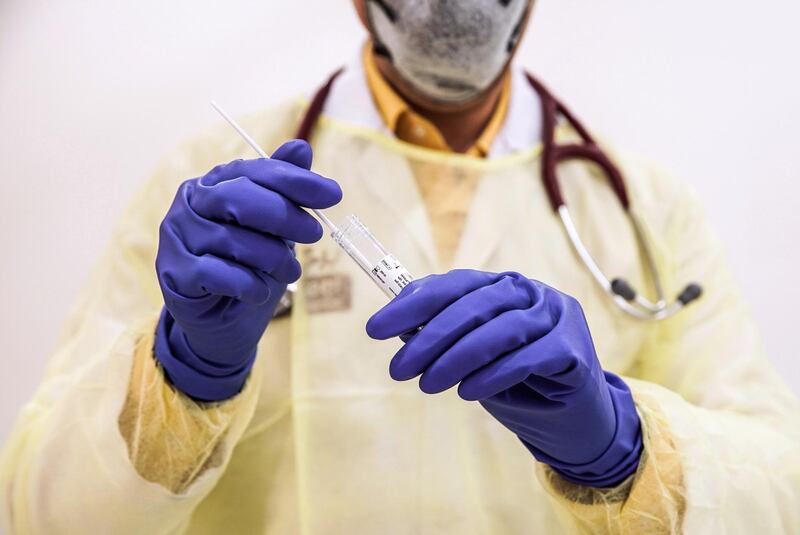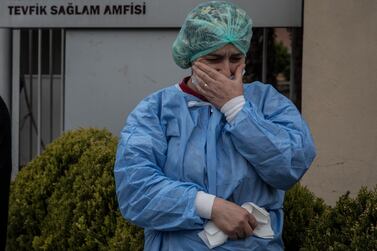Today marks a hundred days since a new strand of the coronavirus, SARS-CoV-2, was officially reported to the World Health Organisation in China. What happened next is no mystery. The virus is considered likely to have originated in one wet market in China, and from there spread to more than 200 countries and territories, with an exponential infection rate. In early March, there were roughly 88,000 confirmed cases.
By the end of the month, that number was greater than 850,000. Now, Covid-19, the disease caused by this coronavirus, has affected more than 1.3 million people worldwide and killed nearly 76,000.
It is difficult to grasp how much daily life has changed in the past 100 days since the onset of the pandemic. The once-bustling roads of Abu Dhabi, Beirut, London, and beyond have gone silent, and the notion of travelling now seems a distant one. Self-isolation, lockdowns and mass testing have disrupted many routines and foiled many plans, but they are a small price to pay to protect ourselves and our loved ones from disease. Even with these measures, however, lives have been lost.
In the UAE, more than 2,000 people are known to have been infected. While 167 have successfully recovered thus far, 11 have died. It is worth remembering those who have perished, and doing everything necessary to spare others from the same fate. The only way to do this is to continue acting responsibly and heeding the guidance of health authorities.
While many of us can safely remain in our homes, perhaps doing our jobs remotely, many essential workers– from medical staff and pharmacists to supermarket employees, transportation workers, delivery workers and cleaners – continue travelling to their places of work, to the benefit of the wider community. These members of our society have always deserved our appreciation, but they deserve it now more than ever.
It is heartening that, in the face of great adversity, the global community is showing resilience and resolve. The citizens of Wuhan, for instance, initiated a daily 8pm applause from their balconies to inspire one another with courage during the lockdown, and to praise the health workers for their critical role relentlessly to end the crisis.
This simple gesture has since been replicated on the balconies of the world, from China to the UAE, Italy and Spain. In Dubai, volunteers have brought food and essentials to those quarantined in the Gold Souk on a daily basis, while others have made donations to help people in need and workers who may have lost their main source of income due to the pandemic.
Much of the world has adapted public policy to curb the spread of the virus. In Wuhan, travel restrictions are due to be relaxed for the first time in three months, giving hope to the rest of the world that its ongoing measures will bear fruit. With enough collective effort and will, they will do so sooner rather than later.






